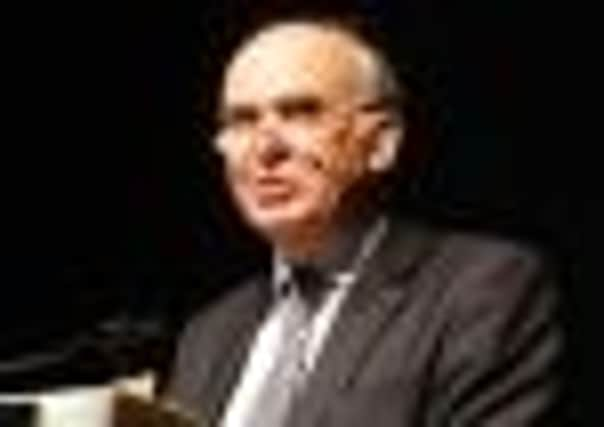Cable’s call for ‘cool heads’ gets heated union reaction


The Minister was heckled yesterday when he addressed a union conference despite going out of his way to stress that the right to strike was a “fundamental principle”.
Several parts of his speech to the GMB annual conference in Brighton were interrupted by shouts, boos and catcalls from delegates, while some held up a banner which read: “Vince Cable not welcome – Stop Attacking Workers’ Rights.”
Advertisement
Hide AdAdvertisement
Hide AdOne of the final round of talks aimed at resolving a simmering row over cuts to public sector pensions is due to be held on Thursday between the Government and leaders of several unions.


Some union officials warned that Mr Cable’s warning had soured the atmosphere and made it less likely that a deal can be reached this week.
Union leaders criticised the speech as “ill-judged”, but business groups said there was a strong case for modernising the law on industrial relations.
Hundreds of thousands of teachers, civil servants and other workers are being balloted on industrial action, raising the prospect of co-ordinated strikes by three quarters of a million employees on June 30 over cuts to pensions, pay, jobs and services.
Advertisement
Hide AdAdvertisement
Hide AdMr Cable said: “Later this month, we may very well witness a day of industrial action across significant parts of the public sector.
“The usual suspects will call for general strikes and widespread disruption. This will excite the usual media comments about ‘a summer’ or ‘an autumn’ of discontent, and another group of the usual suspects will exploit the situation to call for the tightening of strike law.
“We are undoubtedly entering a difficult period. Cool heads will be required all round. Despite occasional blips, I know that strike levels remain historically low, especially in the private sector. On that basis, and assuming this pattern continues, the case for changing strike law is not compelling.
“However, should the position change, and should strikes impose serious damage to our economic and social fabric, the pressure on us to act would ratchet up.”